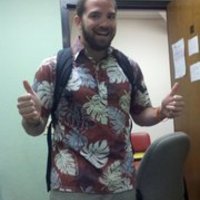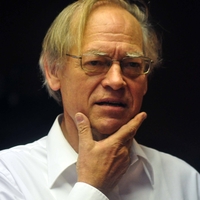Book Chapters by Steven Farias

In this essay, we engage in a community autoethnographic account of how we practice ourselves as ... more In this essay, we engage in a community autoethnographic account of how we practice ourselves as social justice advocates through forensics. Community autoethnography “invites its participants to envision and engage in ‘critical’ community building that works to resituate identified social/cultural and sensitive issues.” Thus, we tell our stories to build community on these pages while exhorting readers to find ways of creating relationships with and among their students. We detail how travel time—or times when a forensic team members interact with one another for an extended duration going to or from tournaments—can be a place where difficult, yet important, discussions about social justice can take place. Central to our essay is the notion that social justice is best understood as a communal and relational practice and that travel time provides a space to explore issues of privilege and oppression through critical dialogue. We conclude the chapter by calling for coaches and instructors to use travel time to create and sustain an inclusive community culture within and beyond the forensic team.
Papers by Steven Farias
The following rhetorical criticism is an investigation of two public service announcements releas... more The following rhetorical criticism is an investigation of two public service announcements released by the Council on American-Islamic Relations. Utilizing a composite method derived from Osborn (1994), Brummett (1991) and Burke (1945), this study investigates what it means when to say how others ought to act and why they ought to act that way. This investigation demonstrates how the manipulations of identities, ideologies, and action are the elements used to motivate people to act in affirmation of an identity. Moreover, it demonstrates why the motivated social actions serve as foundations for constructing our social reality. Ultimately, it discovers and clarifies a grammar of edification, how that grammar allows for efficient quotidian management, and, thus, why it serves as a tool for managing everyday meaning in our social world

When we were accepted into graduate school, we were presented with opportunities as well as expec... more When we were accepted into graduate school, we were presented with opportunities as well as expectations. These opportunities included chances for making a difference in the lives of others, coming to understand the details of our social worlds a little bit better, and becoming different people through the process. These opportunities were imbued with hopes and desires; that is, opportunities imply accepting expectations. These expectations included teaching, seminar reading, research, and various social-networking activities. These expectations can make navigating academia a daunting task—much like wading through the waters of a muddy pond. We have an idea of where we would like to go, but our progress feels murky and can require more effort than anticipated. Worst of all, it often feels as if we are navigating these muddy waters alone without a friend or mentor to guide us. When we were invited to write an introduction to this Special Issue of Kaleidoscope on the nature of qualita...
Kaleidoscope a Graduate Journal of Qualitative Communication Research, 2014











Uploads
Book Chapters by Steven Farias
Papers by Steven Farias